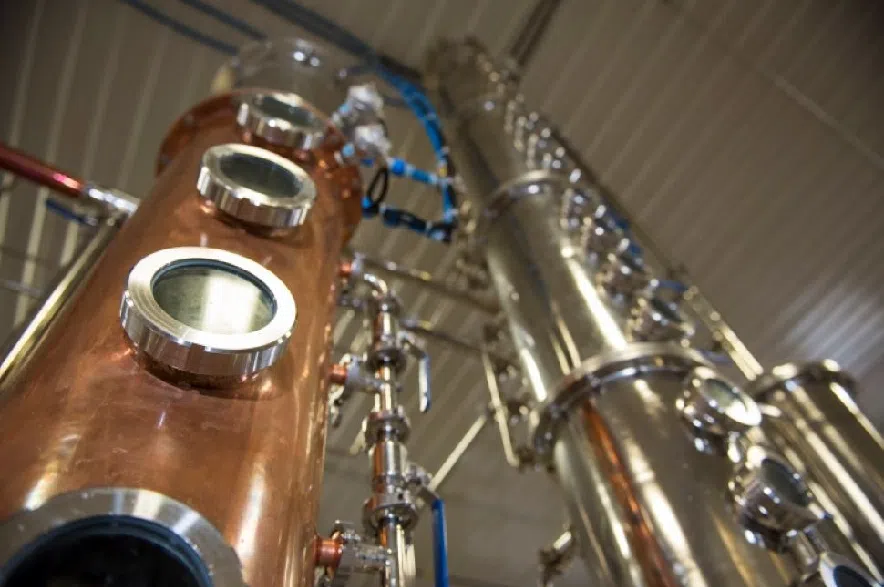by Cameron Koch
While Saskatchewan hasn’t joined other provinces in pulling American alcohol brands off the shelves, the push to buy Canadian is just as strong here as it is across the nation.
Trade tensions are causing no small amount of concern, but the growing support for local products has presented an opportunity for the province’s craft brewing and distilling industry to showcase its products and expand nationally.
Read More:
- Sober sips: Sask. brewery redefining dry January with non-alcoholic beers
- Sask. stores emphasizing local products as tariff threat lingers
- Federal government hosts Canada-U.S. economic summit during tariff pause
Meredith Schmidt is the co-founder of Last Mountain Distillery in Lumsden and president of the Saskatchewan Artisan Wine and Spirits Association. She said she’s excited that consumers are turning to locally made products.
“It’s an opportunity for Canadian spirits, for sure, to show how amazing they are and how they stand up to the American markets,” Schmidt said.
“We always appreciate a shout out for local products, and I think any time people can shop more locally, that’s amazing.”
While the opportunity to bring products to a wider Canadian market and compete directly with American products is one potential positive for Saskatchewan’s distilling industry, the changing tides could also pave the way for long-awaited changes in policies related to interprovincial trade and taxation.
“On a broader front, I guess I see it as an opportunity for the craft industry as a whole to make its grievances known in terms of the taxation that we receive at the federal level,” Schmidt explained.
“The American market has flourished because their craft industry has an amazing taxation system in terms of their excise tax. We are hoping to get the same kind of relief that they’ve got.”
She said other products produced by craft industries are already receiving some breaks, and distillers are overdue for one of their own.
“The excise tax rate, the sin tax that alcohol is charged – the beer and the wine industries have received breaks for their craft sector for years, first wine and then beer… spirits are kind of the last piece of the alcohol industry that has seen no relief from the unbelievably burdensome excise taxes that we have to pay,” Schmidt said.
“Most people don’t understand that between $5 and $7 of a (750ml bottle of liquor) that they buy goes directly to the federal government. That’s not including sales tax or any of the other six taxes that we pay.”
Schmidt said she hopes that provincial and federal governments will use the demand for Canadian products as an opportunity to help make locally produced spirits more affordable and competitive, in part by reducing the tax burden paid by the customer.
“Saskatchewan’s policy towards their craft industry and the way that we are taxed in this province is actually incredibly generous. As there’s talk about interprovincial trade barriers coming down, which could be an amazing thing for spirits and alcohol in general,” she said.
“The catch there is that they would need to level the playing field in terms of how craft is treated across the country.”
Schmidt said policy changes would be welcome, so long as they benefit the industry as a whole as opposed to merely leveling the playing field with provinces like Manitoba.
“Manitoba has an incredibly unfriendly craft policy. That’s why you don’t see very many craft spirit producers there,” Schmidt explained.
“If we can keep our provincial policies and just start selling shipping across the border without having to think twice about it, that would be amazing… Trade barriers between the provinces need to come down and we need to make it easier for people to buy all of the great Canadian products.”











